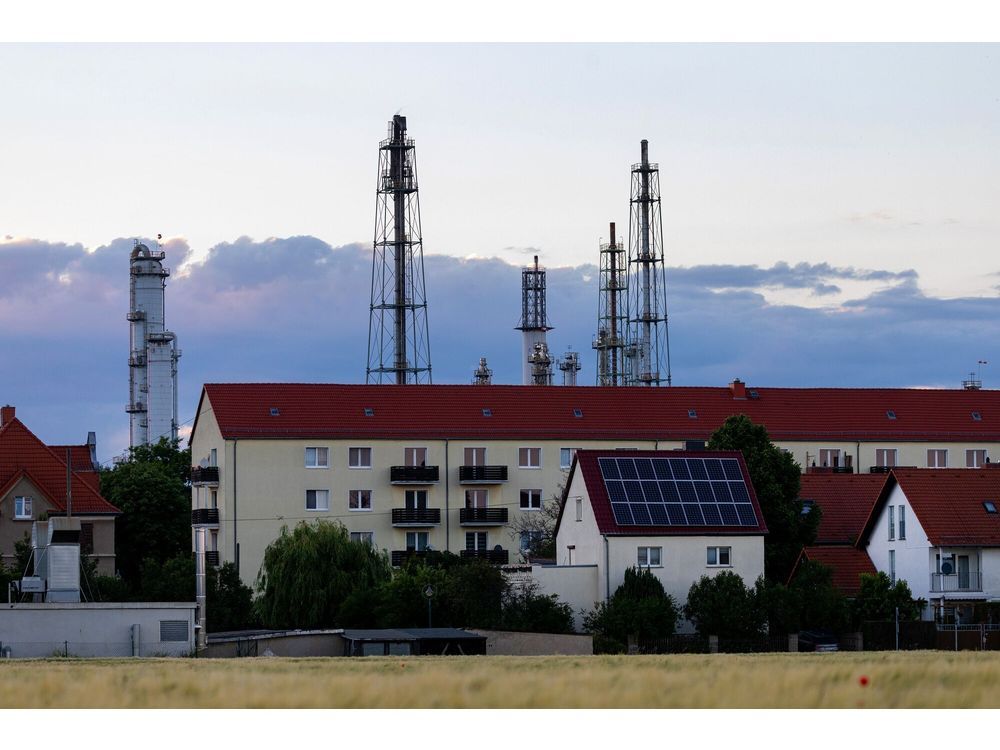
Article content
(Bloomberg) — In the picturesque Bavarian city of Augsburg, 500 homes will soon be kept warm using excess heat from a nearby Rolls Royce Solutions factory. In Leipzig, a similar project involving a TotalEnergies SE refinery received federal funding last month.
The efforts mark part of a broader push to turn Germany’s massive manufacturing sector into a supplier of a more decarbonized heating system. Research estimated the nation’s waste heat potential amounted to around 67 terawatt-hours in 2021 — equal to 15% of total industrial heat consumption.
Article content
Utilizing waste heat is considered a key avenue to reducing emissions. While German industry uses a lot of the heat it creates from burning fossil fuels for productive processes — like electricity generation or driving chemical reactions — a large part goes unused. Recovering it can lower the use of primary fuels and, therefore, emissions.
“We don’t need as much heat as we generate,” said Tobias Schnell, chief executive at Rolls Royce Solutions’ Augsburg factory. “That’s why we decided to feed this heat into the city’s district heating network.”
While the company is still hammering out contractual details with the city, it plans to provide unused heat to homes as of next summer, saving about 1,500 tons of carbon dioxide a year.
To use waste heat, firms need to invest in heat exchangers or pumps. The latter help to upgrade temperatures and make waste heat useful in higher-temperature applications, such as reuse in industry. Other European countries lean more heavily on the technology, such as Norway, where it provides about 13% of the heat used in local grids, according to a study by Agora Energiewende.
Berlin is trying to encourage more waste heat to be put to use: As of next year, firms consuming more than 2.5 gigawatt-hours of energy a year will have to disclose their waste heat potential on a platform matching them with potential offtakers.
“The challenges in implementing large-scale heat pump projects currently lie less in the technology and more in the lack of a regulatory framework and missing financial incentives for operators,” said Christian Hüttl, global head of heat pumps at Siemens Energy AG.
Share this article in your social network